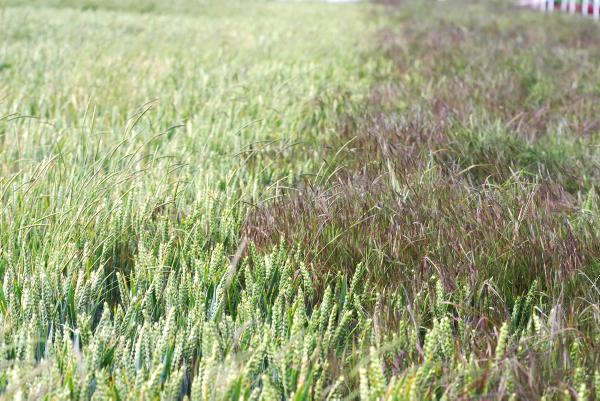Weather Slows start of harvest 2015:
This will be one of the latest starts to the harvest for many years – such are the vagaries of our Irish weather. But most crops are far from ripe, so it is only the earliest that are being delayed by the broken weather. There is little doubt but that individuals will be dipping in with combines at the first half chance to check for moisture and grain quality. Later-maturing crops are still being hit by crows.
Weather is also causing other difficulties. Ear blight is becoming more apparent in spring crops and potato blight control is once again a serious issue.
Winter barley:
As crops get closer to harvest, one can be more hopeful of yield than a few months ago. Grain fill looks good, but it will be all about how it weighs. Generally, grains do not form big balloons of water when conditions are dry during grain fill and this always seems to help quality, or at least specific weight.
Grass weeds:
One of the most common discussion points this year is the proliferation of grass weeds in crops. This seems to be coming as a surprise to many, but if you have one weed and do not remove it you will just spread it around and have many more next year. Grass weed control requires management as well as chemical control. You will win very few of these battles with just chemicals.
Allowing any grass weed to proliferate just adds permanently to production cost and we all know that this is too high to begin with. Rotation has always been a key tool for grass weed control because it provides the option to have different planting seasons, different chemical tools and to use cultural control as part of the strategy. But regardless of rotation, stubble cultivation must be done to help encourage more of the weed seeds to germinate prior to crop establishment.
More grasses are becoming bigger problems and general control levels were often lower this year due to the poor spring growth conditions. Wild oats are being tackled, but only using chemistry that often leaves some plants to shed more seeds. We are already hearing talk of resistance to some herbicides and most farmers are aware of the resistance concerns regarding blackgrass.
The biggest concern this year for most is that sterile brome and canary grass is no longer confined to the south. This too is a very serious weed. Relying on chemical control is not sustainable. Rogueing one plant could help prevent a future problem. The objective must be to have zero seed return from all weeds.
The threat from grass weeds makes it important to know where machines, or products coming onto a farm, have come from. If you are free of these problems, you cannot afford to let in a combine or baler that has been in infested land. Sources of straw and dung also bring new concerns. Purity of seed sources is critical.










SHARING OPTIONS